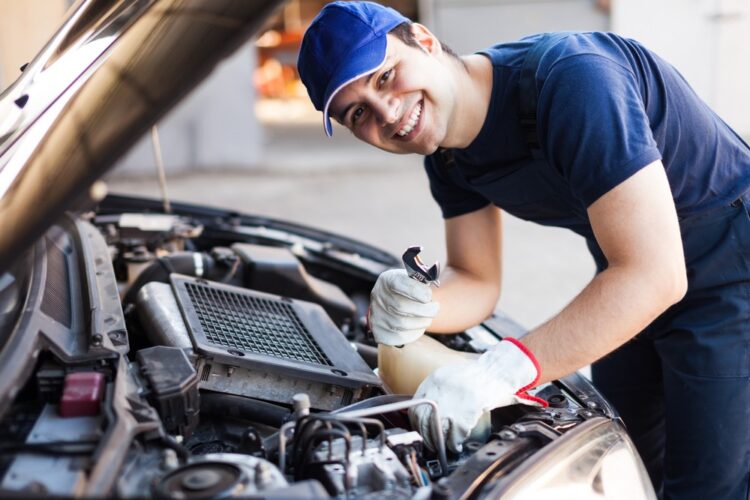The Importance of Regular Vehicle Maintenance
Regular vehicle maintenance is akin to nurturing a plant; it thrives if attended to with care. Skipping routine check-ups can lead to significant issues, like neglect, which leads to a withered bloom. Most vehicles require maintenance at intervals dictated by mileage or time, often involving oil changes, filter replacements, and inspections. Preventive maintenance enhances vehicle safety and saves you money in the long run. Imagine being stranded on the side of a road due to overlooked maintenance — a situation nobody wants to face. Adhering to a strict maintenance routine promises durability and peace of mind for every journey.
Key Services Offered by Auto Repair Shops
Auto repair companies offer auto repair companies off every facet of vehicle maintenance. The foundation of an automobile’s lifetime is routine maintenance, such as tire rotations and oil changes. Additionally, specialized services, including brake repairs and engine diagnostics, ensure that professionals manage more complex issues. It’s essential to understand these offerings so that when unexpected incidents arise like engine knocking or brake squealing, you know the help that can restore your vehicle’s health. In Lynnwood, for instance, one might turn to truck repair Lynnwood services for large vehicles needing specialized attention. These services preserve the integrity of your car, ensuring it remains roadworthy. In addition to improving safety, routine maintenance boosts your car’s market value. A trustworthy auto repair company gives you peace of mind since you know your vehicle is in capable hands.
How to Choose a Reliable Auto Repair Shop
- Certifications and Affiliations: One reliable indicator of a shop’s competence is its certifications. Look for ASE certification prominently displayed, as it verifies a technician’s proficiency across various automotive systems. Affiliated shops often adhere to standards set forth by trusted organizations, ensuring quality and accountability.
- Reputation and Reviews: In an age where information is at our fingertips, exploring a repair shop’s reputation through online reviews is invaluable. Platforms such as Google Reviews and Yelp offer insights into customer experiences that are not evident at first glance. Word of mouth remains powerful; ask friends and family for recommendations for a clearer picture.
- Convenience Without Compromise: While a nearby location offers unmatched convenience, balancing it with service quality is crucial. Quality may be compromised for proximity, which could result in subpar repairs and cause you more inconvenience.
Understanding Service Guarantees and Warranties
Warranties and service guarantees can often appear as industry jargon for uninformed customers. However, these components are critical in ensuring you’re protected post-service. A warranty typically covers parts and mechanics for a determined period, offering repairs or replacements without additional costs during the warranty duration. For instance, understanding the benefits of extended warranties can guide you to make the best choice for your vehicle. These guarantees provide a security net, giving you confidence and protecting your investment against unforeseen issues.
Questions to Ask Your Mechanic
Standing at the helm of communication with your mechanic can demystify the repair process and keep you informed about your vehicle’s needs. Questions such as “What is the primary issue?”, “Are there alternative solutions?” and “How will this repair enhance vehicle performance?” are essential for clarity. Such inquiries ensure you’re not in the dark about procedures or costs, fostering trust and transparency. Good communication helps elevate the service experience, making routines like scheduling questions to ask your mechanic an integral part of your pre-visit checklist.
Maintaining Your Vehicle Between Visits to the Shop
While professional services are irreplaceable, specific maintenance tasks can be performed without a mechanic’s expertise. Regularly examining tire pressure and fluid levels lets you catch potential issues early. If you take easy steps like cleaning or changing your air filters, your engine will “breathe” more efficiently and use less gasoline. Moreover, practicing these habits saves on costs and instills a sense of ownership and knowledge about vehicle health, lessening the likelihood of surprise visits to the repair shop.
Technology’s Place in Contemporary Auto Repair
The auto repair industry’s landscape has transformed significantly with technological advancements. Modern vehicles are sophisticated machines embedded with electronic systems requiring equally advanced diagnostic equipment. Mechanics now employ tools that precisely assess and troubleshoot automotive issues, reducing diagnostic times and improving service efficiency. Technicians gain insights into engine performance and vehicle dynamics through computerized systems, transitioning the experience from a mere grease-and-oil job to a high-tech process. This innovation streamlines repairs and enhances safety, ensuring each vehicle operates at peak performance post-service.














